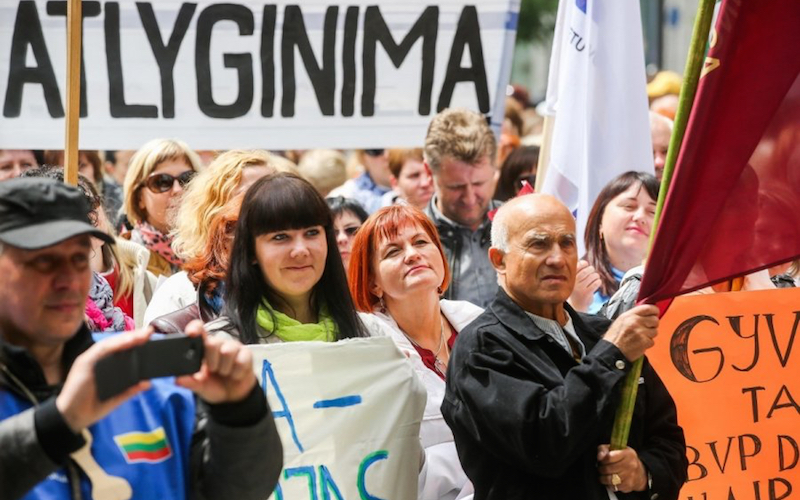
Lithuania Chooses Priorities
In December teachers went on strike twice in Lithuania. Teachers were demanding higher wages, smaller classes and a larger compensation fund for retiring teachers.
People on the streets expressed resentment. Ruta Osipaviciute, a teacher at one of Vilnius’ schools, told journalists during the strike, “We are pushed to the corner…I think the government has made so many promises to the educational society that we think we need to seek their fulfillment.”
Once again their message was not heard. The government promised that wages of the lowest-earning teachers would be increased 7 percent in 2016. New teachers would see their wages rise by 5 percent, and wages for the remaining teachers would increase by 3 percent.
Quotha! No wonder, despite the increases, teachers’ trade unions say they are not sufficient. The government agreed to satisfy only some of the teachers’ demands and will give them an additional 10 million euro instead of the 100 million needed!
It is indisputable that there are some issues that should remain among the government’s priorities like medical, education and the military. Increasing financing in one area should not be done to the detriment of the others.
Obviously, this time the Ministry of National Defense has made sure that the new budget benefits their sector. Lithuania’s parliament increased the defense budget for 2016 to 575.2 million euro, up 35.3 percent from a year earlier. Lithuanian Defense Minister Juozas Olekas said in a statement that the hike in military expenditures will allow the ministry “to plan further modernization of weaponry and to ensure the commitments to NATO allies.” Most Lithuanians, including teachers, support the government’s plans to modernize the military, but recently announced plans to purchase of over 50 vehicles for officials does not support its goal.
While the Defense Ministry’s request for comfortable new cars is being met, teachers’ requests for better labor conditions will not improve noticeably in the foreseeable future.
In this situation, the Lithuanian authorities have unfortunately and unwittingly pitted Lithuanians against the military establishment. No one will understand why buying new cars for the Defense Ministry is an urgent need while teachers’ salaries are of secondary importance. Such procurements look strange and unjust. It is unwise to pit the military against other citizens. In case of war they will all trench together!

